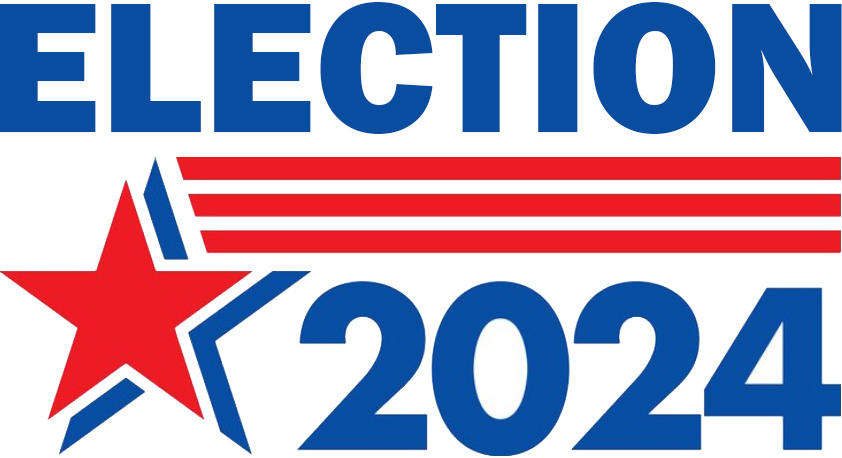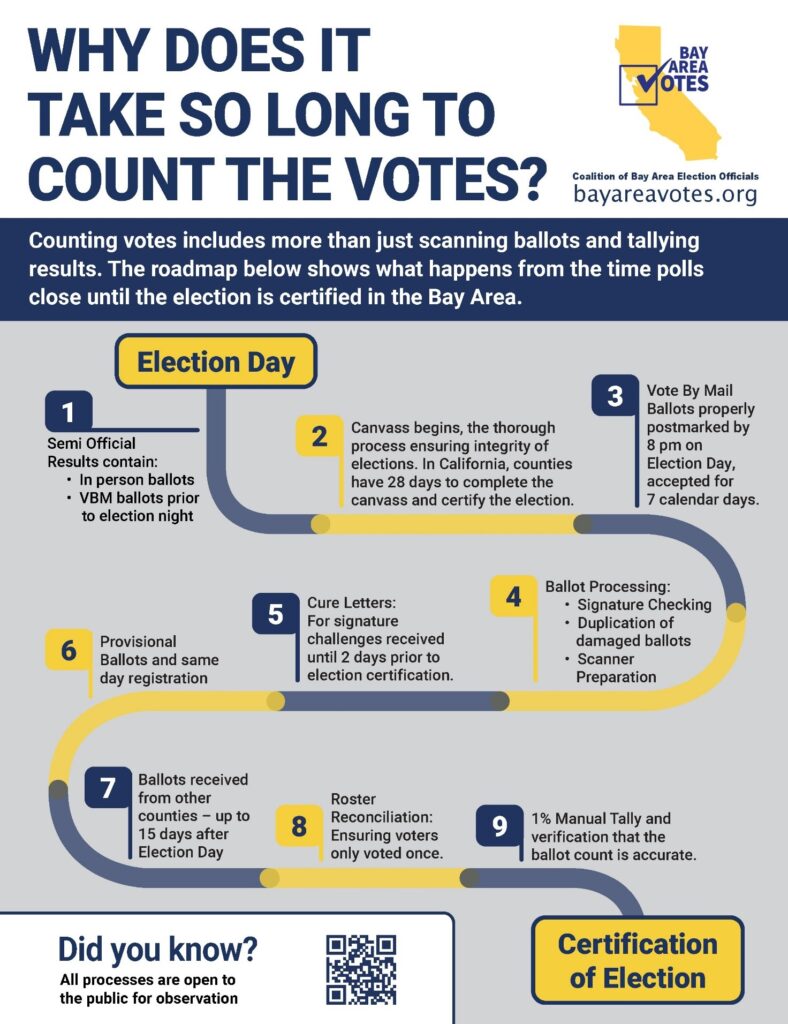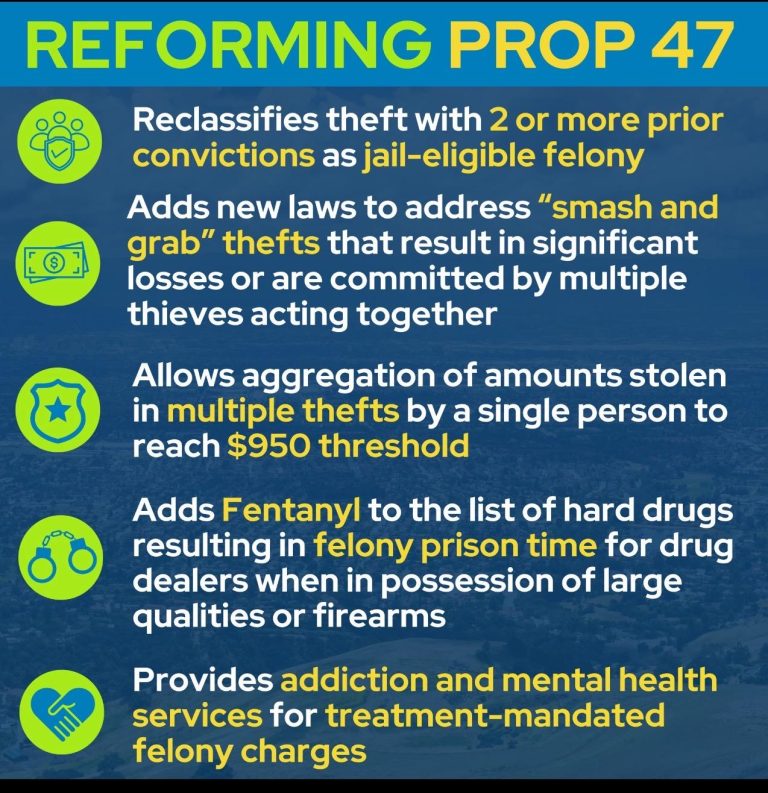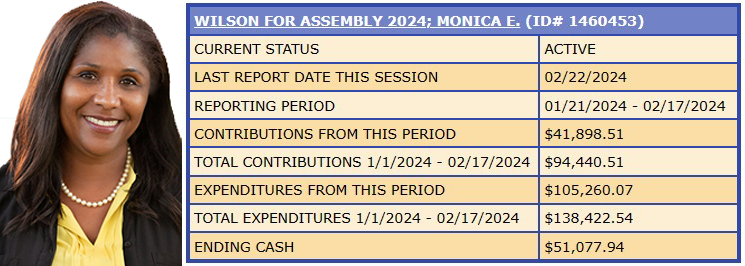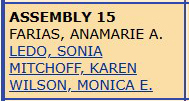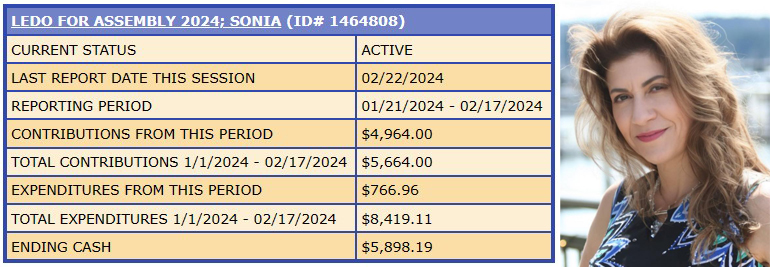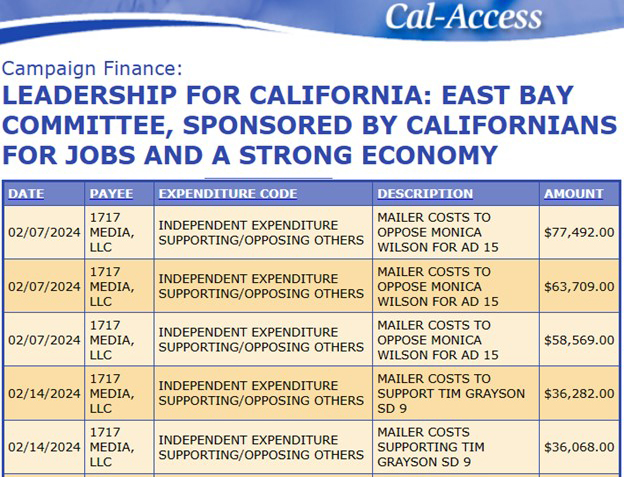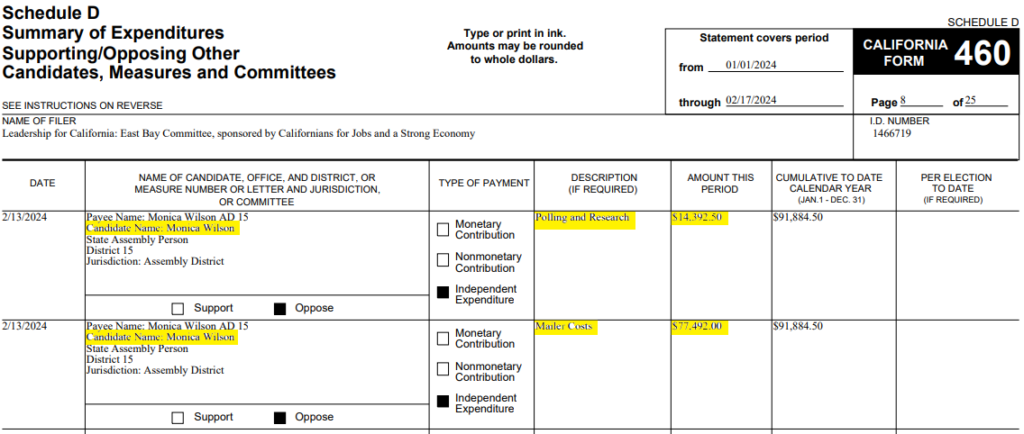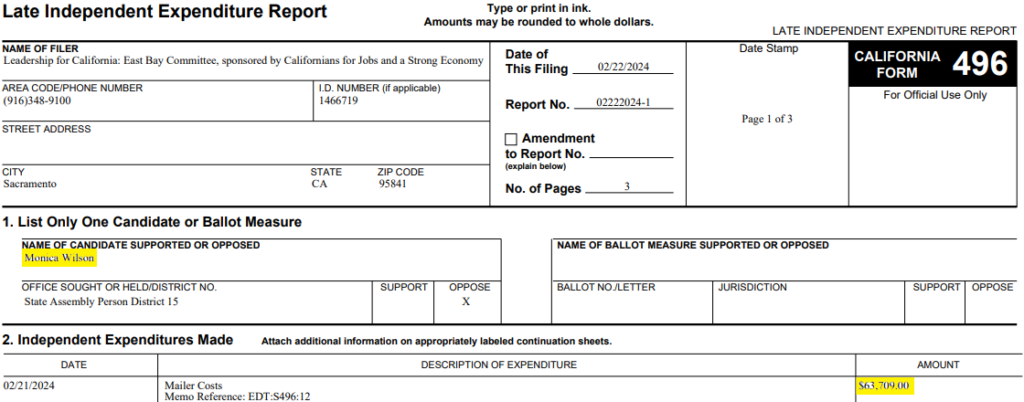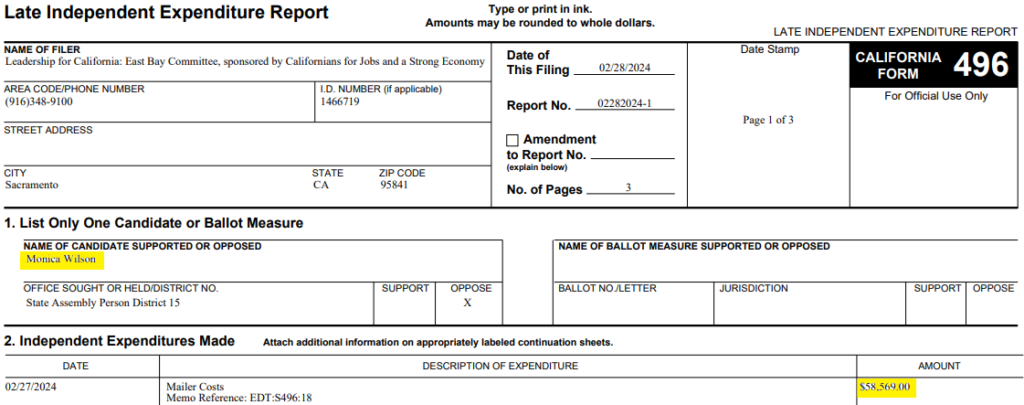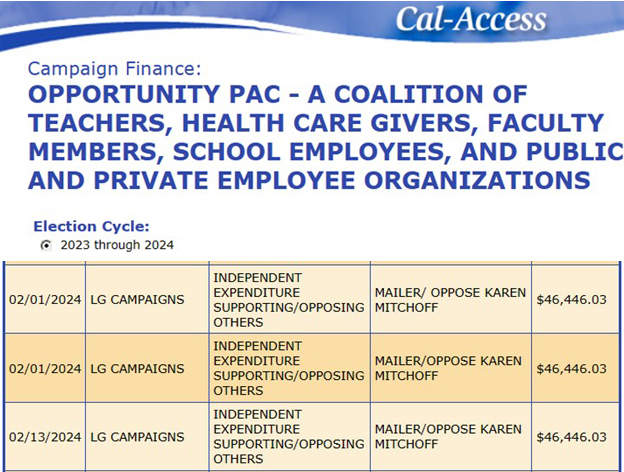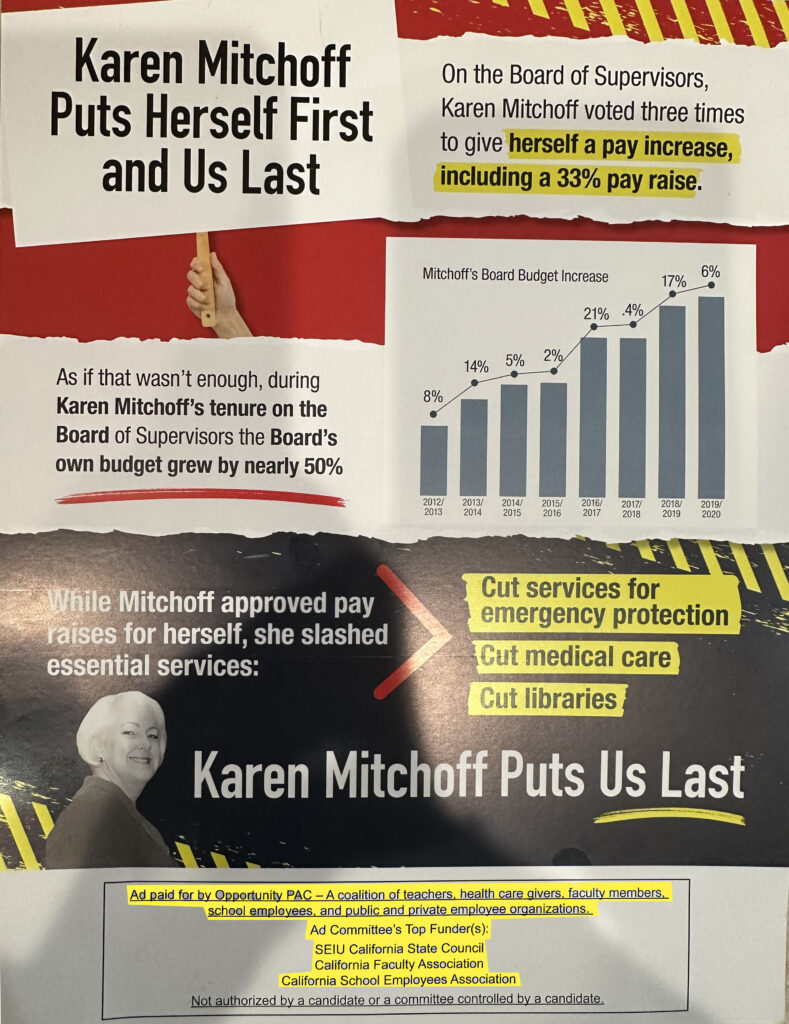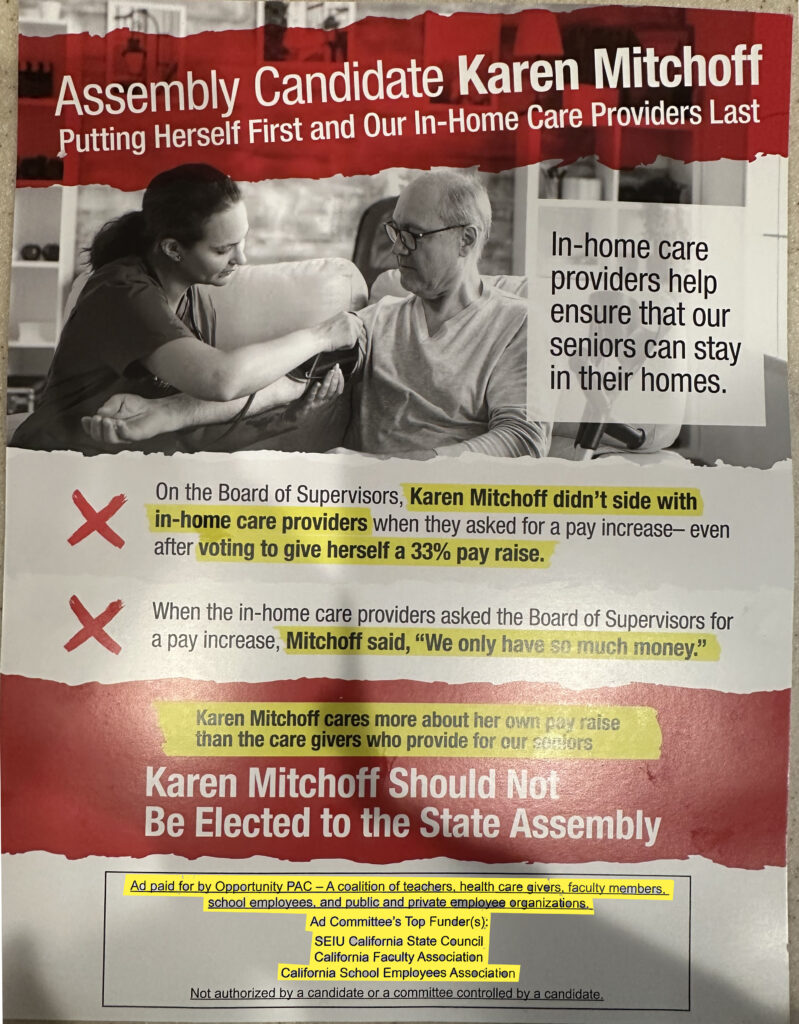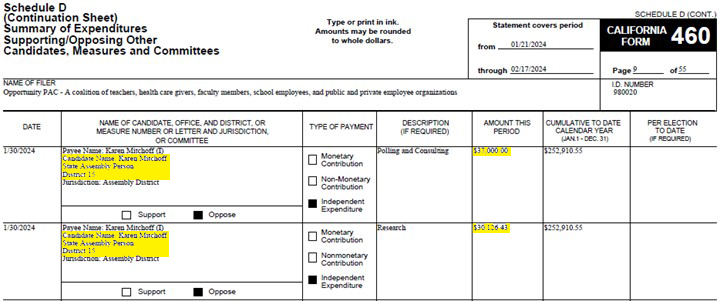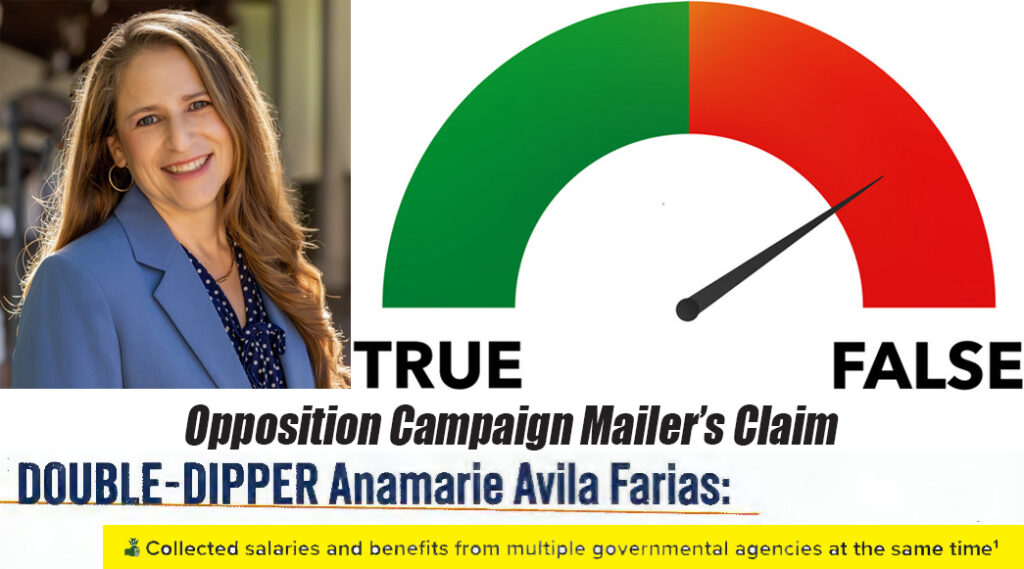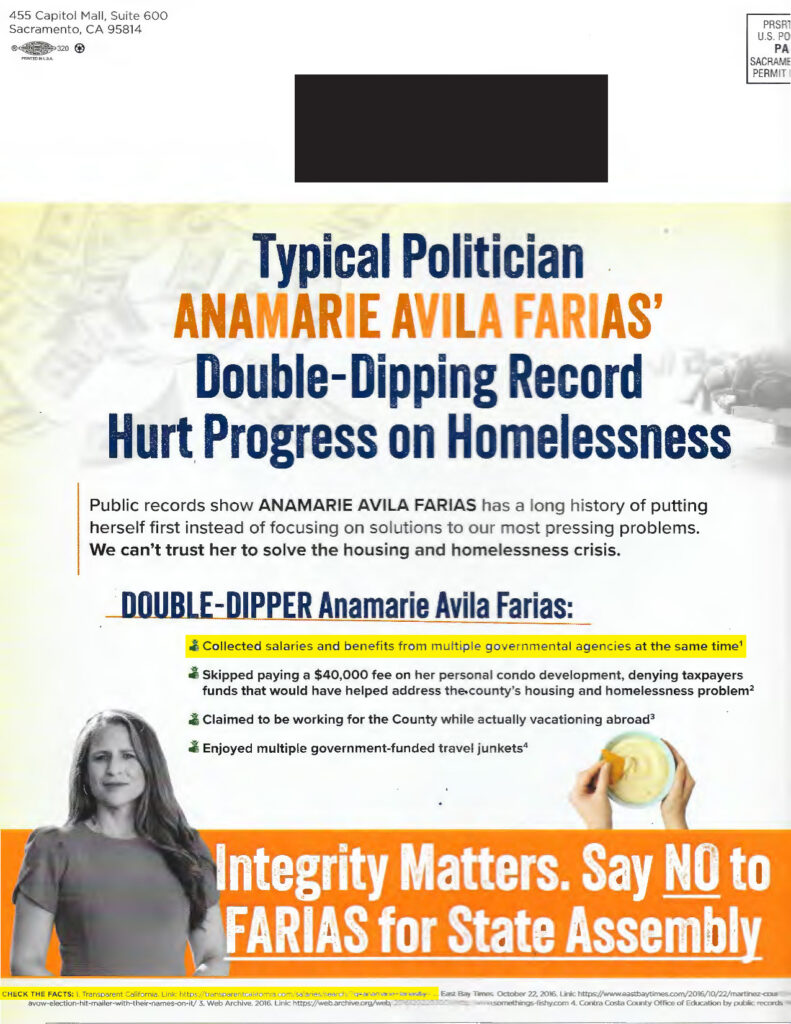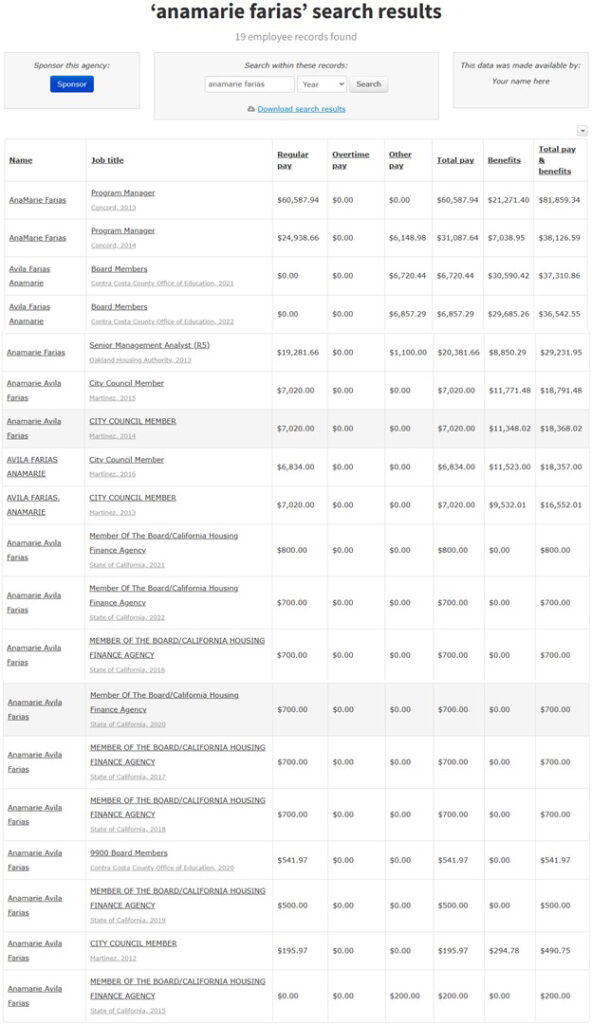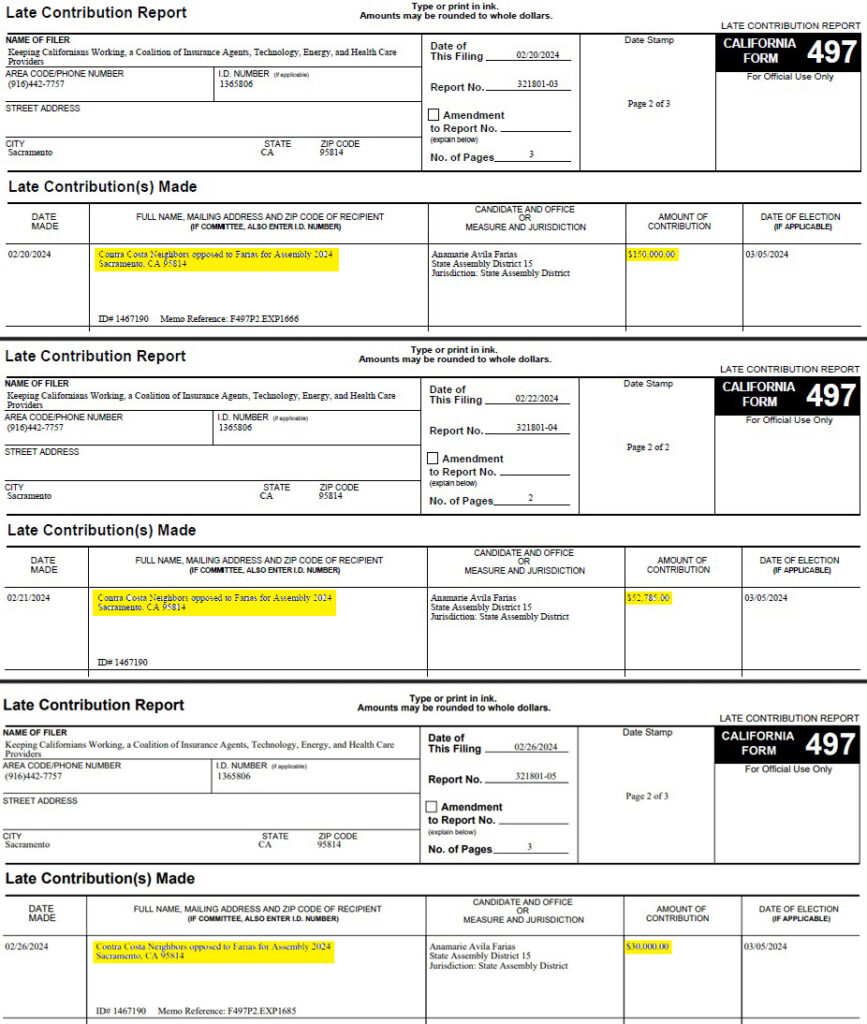Barbanica leads in votes, Scales-Preston leads in finances in Contra Costa District 5 Supervisor race
Wednesday, March 13th, 2024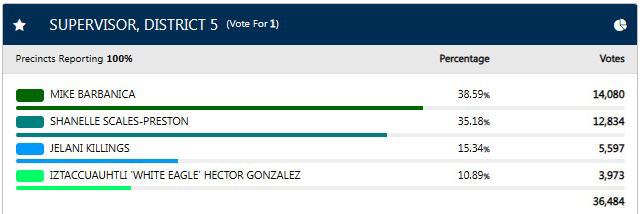
5,300 ballots remaining to be counted in the county
By Allen D. Payton
In the race for Contra Costa County District 5 Supervisor Antioch Councilman Mike Barbanica leads in votes over Pittsburg Councilwoman Shanelle Scales-Preston who placed a second in last Tuesday’s primary election. But she leads in campaign finances, having raised about $114,500 while Barbanica had raised close to $100,500.
In a distant third place is Pittsburg Vice Mayor Jelani Killings in both votes and campaign finances, having raised close to $18,000 and fourth-place finisher in both votes and finances is Iztaccuauhtli “White Eagle” Hector Gonzalez who raised almost $10,200 all in loans from himself.
As of the latest update from the Contra Costa Elections Office today, Wednesday, March 13 at 2:50 PM, Barbanica has 14,080 votes or 38.59% of the vote to 12,834 votes for Scales-Preston or 35.18%. Killings has 5,597 votes or 15.34% and Gonzalez has 3,973 votes or 10.89% of the vote.
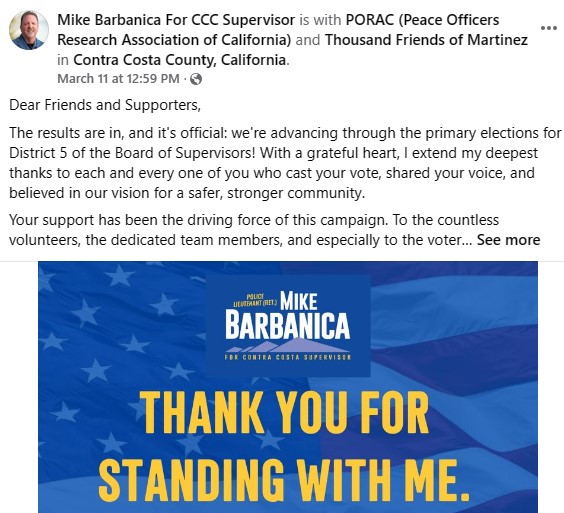
On Monday, Barbanica posted a thank you message on his campaign Facebook page writing:
“Dear Friends and Supporters,
The results are in, and it’s official: we’re advancing through the primary elections for District 5 of the Board of Supervisors! With a grateful heart, I extend my deepest thanks to each and every one of you who cast your vote, shared your voice, and believed in our vision for a safer, stronger community.
Your support has been the driving force of this campaign. To the countless volunteers, the dedicated team members, and especially to the voters who took a stand for our shared values—thank you. This triumph is yours as much as it is ours.
A special acknowledgment to the elected officials who have endorsed our cause; your faith in our mission fortifies our resolve. I’m also incredibly thankful for the endorsements and unwavering support from esteemed organizations such as Thousand Friends of Martinez, PORAC, CCDSA, and the Police Officers Associations of Martinez, Richmond, Concord, Pittsburg, San Mateo County, and Clayton. The backing of the Local 326 United Steel Workers has been nothing short of inspiring.
As we gear up for the next phase of this journey, let’s remember that this is more than a campaign; it’s a collective effort to nurture the well-being and prosperity of Contra Costa County. We’re in this together, and together, we will make a difference.
Warm regards,
Mike Barbanica”
When reached for comment he said, “I’m absolutely honored for the support from our community and I look forward to continuing to move towards the general election and change coming to the District 5 office, later this year, in December. For the last 24 years this office has been represented by someone from Pittsburg and it would be nice to see change coming to the office, from someone such as myself who has Pittsburg connections, Antioch connections and connections to the rest of the district.”
“I spent 21 years as a Pittsburg Police officer, retiring as a lieutenant, and my wife was born and raised in Pittsburg. So, we have a lot of ties, there,” Barbanica added.
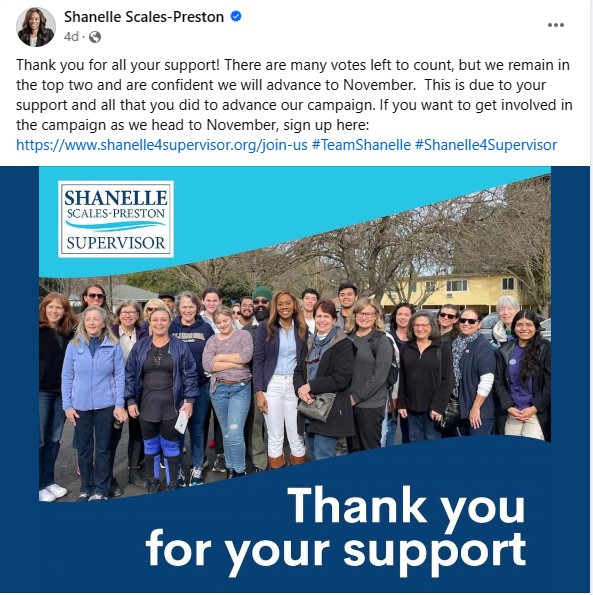
Attempts to reach Scales-Preston for a comment were unsuccessful prior to publication. However, on Saturday, she posted the following comment on her campaign Facebook page: “Thank you for all your support! There are many votes left to count, but we remain in the top two and are confident we will advance to November. This is due to your support and all that you did to advance our campaign.”
Campaign Finance Comparison
According to the required campaign finance disclosure reports known as Forms 460 and 497 posted on the Contra Costa Elections Public Portal, as of March 6, 2024, Scales-Preston had raised $114,514 and as of Feb. 29 her campaign had spent $105,029.33, with $5,036.13 in outstanding debts and $8,596.22 cash on hand.
As of March 6, 2024, Barbanica’s reports show he had raised $100,452.65 and as of Feb. 29, his campaign had spent $93,384.62 with $58,817.66 in outstanding debts and $24,229.52 cash on hand.
As of Feb. 29, Killings’ reports show he had raised $17,773 and spent $19,769.39. He ended his campaign with $2,515.54 in outstanding debts and $3,185.26 cash on hand.
As of the same date, Gonzalez’s reports show he loaned his campaign $10,197.13, didn’t raise any other funds and spent $8,576.42. He ended his campaign with outstanding debts of $10,197.13 and 1,620.71 cash on hand.
Both Scales-Preston received $5,000 from the Building Industry Association of the Bay Area’s Build Jobs PAC and both she and Killings received contributions from former Antioch resident Keith Archuleta.
Scales-Preston Supported by PACS, Politicians & Unions
Scales-Preston received most of her campaign funds from union political action committees and local politicians. Her largest contributions were as follows:
$5,000 each from International Brotherhood of Electrical Workers (IBEW) 302 Community Candidates PAC of Martinez; IBEW PAC Educational Fund in Washington, DC; Sheet Metal Workers Local Union 104 Poltical Committee; United Association No. 159 Consumer Protection Fund Sponsored by Plumbers & Steamfitters Local 159 of Martinez; American Federation of State, County & Municipal Employees Council 57 PAC, and International Brotherhood of Boilermakers, Iron Ship Builders, Blacksmiths, Forgers and Helpers Local 549 PAC, and Build Jobs PAC, ID #761102 Sponsored by Building Industry Association of the Bay Area;
$2,500 each from Dignity CA SEIU Local 2015; Karen Grove Menlo Park, retired; former political consultant Melody Howe Weintraub of Lafayette, Progressive Era PAC (ID# 1449477) which, according to its website, “exists to elect governing majorities of leaders in California committed to building a progressive era for people of color”; homemaker Faye M. Stratus and a separate contribution from Sandor H. Stratus, retired, both of Lafayette; Victor Baker of Martinez, owner of Equitify a diversity, equity and inclusion consulting firm; Sikh Society of Central Contra Costa County; Lift Up Contra Costa Action which, according to its website, “fights against all forms of oppression, including anti-black racism, racism, anti-immigrant, anti-LBGTQ, environmental & healthcare injustice and the classist, anti-worker movements”, a Project of Tides Advocacy PAC, which, according to its website, is “deeply committed to advancing social justice”; District 1 Contra Costa County Supervisor John Gioia, Laborers International Union of North America Local No. 324, Northern California Carpenters Regional Council Small Contributor Committee, and Service Employees International Union Local 1021 Candidate PAC;
$2,000 from garbage company Republic Services Inc., and affiliated entities;
$1,400 from Kanwar Singh of Pittsburg, a Sequence Read Archive Explorer for the Joint Genome Institute;
$1,000 from David Bowlby of Danville, public affairs consultant of The David Bowlby Group; East Bay Regional Parks Director Colin Coffey of Hercules; Daniel Madigan of Walnut Creek, not employed; Debbie Toth of Fairfield, Director of the nonprofit Choice in Aging; DRIVE Committee (International Brotherhood of Teamsters. Democrat, Republican, Independent Voter Education) in Washington, DC; East Bay Trans, Inc. trucking company of Concord, Haver Trans, Inc. dump trucking company of Concord, Jasmine Tarkoff of Lafayette, retired; and Lupe Schoenberger of Alamo, listed as not employed but her LinkedIn profile shows she is Congressman Mark DeSaulnier’s political director and Principal of Acceso Government Relations, LLC described as “Facilitating cannabis business licensing and local government relations;” and Latika Malkani of Orinda, Attorney for employment law firm Siegel LeWitter Malkani;
$700 from Leonard Ramirez of Concord, retired;
$600 each from Contra Costa DA Diana Becton; Paramjit Virk of Antioch, a Registered Nurse at the Contra Costa Regional Medical Center; Contra Costa County Democratic Central Committee Chair Katie Ricklefs of Lafayette, listed as retired, and Kathleen Petricca of Martinez, retired;
$500 each from Berkeley school teacher Cathy Campbell of El Cerrito; John Cumbers of Lafayette, Chief Executive Officer for SynBioBeta; Friends of Gina Daly for Board of Education Trustee Area 1 2024 in Oakland (former San Rafael school board member who resigned in December after the contribution was made); Carol Hatch of Martinez, retired; insurance broker Gregory Osorio of Pittsburg, consultant Keith Archuleta of Chapel Hill, NC (a former Antioch resident); Service Employees International Union United Healthcare Workers West PAC, Kathy Braun of Martinez, retired; G R Beverages, Inc. of Antioch, United Teachers of Richmond, Cynthia Miller of Martinez, Owner of George & Cynthia Miller Wellness Center (wife of former congressman), Willie Mims of Pittsburg, Mariana Moore of Benicia, Program Manager for Richmond Community Foundation, Leslie Shafton of Walnut Creek, Realtor, Dudum Real Estate Group, Teamsters Local Union No. 315,
$460 from Mt. Diablo Unified School Board Trustee Cherise Khaund of Walnut Creek, listed as a nonprofit manager;
$400 from Contra Costa County Superintendent of Schools Lynn Mackey;
$350 each from Jim Craft of Pittsburg, as an in-kind contribution for use of a venue for a fundraiser; and Caitlin E. Sly of Walnut Creek, Executive Director for Meals on Wheels Diablo Region;
$300 from former City of Antioch Public Information Officer Rolando Bonilla of San Jose; El Cerrito Councilman Gabriel Quinto, Susan Mautner of Orinda, not employed; Charles Glasper of Antioch, retired, who contributed on Jan. 11, 2024 and then served as the MC and asked the questions during the NAACP Candidates Night in Antioch on Feb. 22;
$260 from Mt. Diablo Unified School District Trustee Cherise Khaund of Walnut Creek;
$250 each from DLC Group Inc. of Pleasant Hill owned by a Dalton Chow, Walnut Creek Mayor Pro Tem Loella Haskew, Benjamin Miller of Arlington, VA, Principal, Kadesh & Associates a bipartisan federal advocacy firm; Patricia Reyes of San Ramon, Consultant for Strategic Prevention Solutions; Valerie Sloven of Pleasant Hill, Case Manager for Heluna Health, Carol Toms of Concord, Information Technology Professional for Albertsons; Contra Costa County School Board Trustee Sarah Butler of Orinda; Baljit Bhandal of Pittsburg, General Manager for The Wine Village, Inc.; Bombay Trading Company of Concord, Contra Costa County Public Defenders Association, State Farm Insurance agent Tim McGallian of Clayton, Tara Sanders of Pittsburg, Program Manager – Workforce & Economic Development for the Contra Costa Community College District; Tracy Brog of Lafayette, retired; Martinez City Councilman Jay Howard’s 2022 campaign committee, Mike McCoy of Danville, Billboard Developer for Mesa Outdoor, and Janitzia Rodriguez of Pittsburg, Mental Health Clinician for Contra Costa County.
Although not large contributions, Scales-Preston also received $200 from Adrienne Ursino of Martinez, Director of Stakeholder Engagement for the American Fuel & Petrochemical Manufacturers and former Antioch School Board Trustee Debra Vinson, $150 from Pittsburg Mayor Juan Banales, Hercules City Councilwoman Christine Kelley, former Pittsburg Councilwoman Nancy L. Parent, and former Clayton Councilwoman Tuija Catalano, as well as $100 each from Concord Councilman Edi Birsan, former Orinda Councilwoman Amy Worth, former Walnut Creek Councilwoman Gail Murray, and the Marsh Creek Democratic Club.
Barbanica Backed by the Badge, Builders & Business
Barbanica’s largest contributions were from law enforcement, the building industry and local businesses. They include the following:
$10,000 from the Contra Costa County Deputy Sheriff’s Association PAC Small Contributor Committee with $5,000for the primary and the other $5,000 for the general election;
$5,000 each from Bryan Benton of Antioch, owner of Da Nang Turang restaurant and Build Jobs PAC, ID #761102 Sponsored by Building Industry Association of the Bay Area;
$2,500 each from Peace Officers Research Association of California PAC (PORAC PAC) Small Contributor Committee, Sheriff David Livingston’s 2028 re-election committee and the Richmond Police Officers Association PAC;
$2,000 each from Kay Ku of Newport Beach, retired; Stacey Romero of Pittsburg, retired; Weston Law Group, PC of Danville; Fernandes Auto Wrecking and Towing of Pittsburg; and San Bernardino County Sheriff’s County Employees’ Benefit Association Local PAC;
$1,500 from Jim Moita of Clayton, owner of property management company JMI Properties Corporation;
$1,000 each from real estate investor Mike Cava of Oakley and Thousand Friends of Martinez;
$500 each from the Concord Police Association PAC; Dennis Costanza of Pittsburg, Director for home builder Lennar; former Pittsburg Mayor, City Clerk and Assistant City Manager Mary Erbez; Brentwood Councilman Tony Oerlemans; Sheila Stokley, of Stokley Properties in Pleasant Hill; and Christopher Thorsen of Walnut Creek, retired; and
$250 each from Assistant District Attorney Mary Knox, Mike McCoy of Danville, Billboard Developer for Mesa Outdoor and Susan Dragon Presser of Pittsburg, retired.
Killings’s Campaign Cash is from Kin, Cops & Others
$2,500 from Denise Killings of Pittsburg, retired;
$1,500 from Henry A. Killings, Pastor of Threshing Floor Tabernacle in Antioch; Leah L. Blackman of Brentwood, Pastor of Faith Worship Center, and William Posada of Antioch, listed as an Independent Distributor but is the Manager with Only Believe Distributor, LLC;
$1,000 from Pittsburg Police Officer’s Association, Efrem R. Finn of Oakland, Operator for Rydetrans bus service; consultant Keith Archuleta of Chapel Hill, NC (former Antioch resident), and a non-monetary, in-kind contribution for fundraising event expenses from Peter Nguyen of Pittsburg, Owner of Fisherman’s Catch;
$600 from Blayne Wittig of Martinez, Executive Director, Options Health;
$500 from Jerry Beverly of Alameda, listed as an Investor/Philanthropist, Losefa Lam Yuen of Pittsburg, who works in Logistics for the Department of Homeland Security, and Paul Loukianoff of San Leandro, who works in construction for Con-Quest Contractors, Inc.,
$450 from Daniel Patton of Oakley, Business Solutions Manager for WK Kellogg Company;
$250 from East County Glass & Window, Inc. in Pittsburg, and Kevin McGary of Hayward, President of Every Black Life Matters; and
$200 from Sarah Jean Killings of Pittsburg.
Ballot counting has continued as mail-in ballots postmarked by Election Day, March 5 could be received until yesterday, March 12 and the County Elections Office has 28 days to certify the election.
Asked if there are any remaining ballots to be counted and when the next results update will be, Assistant Registrar Helen Nolan said, “We have about 5,300 ballots left to process as of today” and added the next update will be Friday, March 15 at 4 p.m.
The top two candidates, Barbanica and Scales-Preston will face off in the November general election.
Please check back later for any updates to this report.








